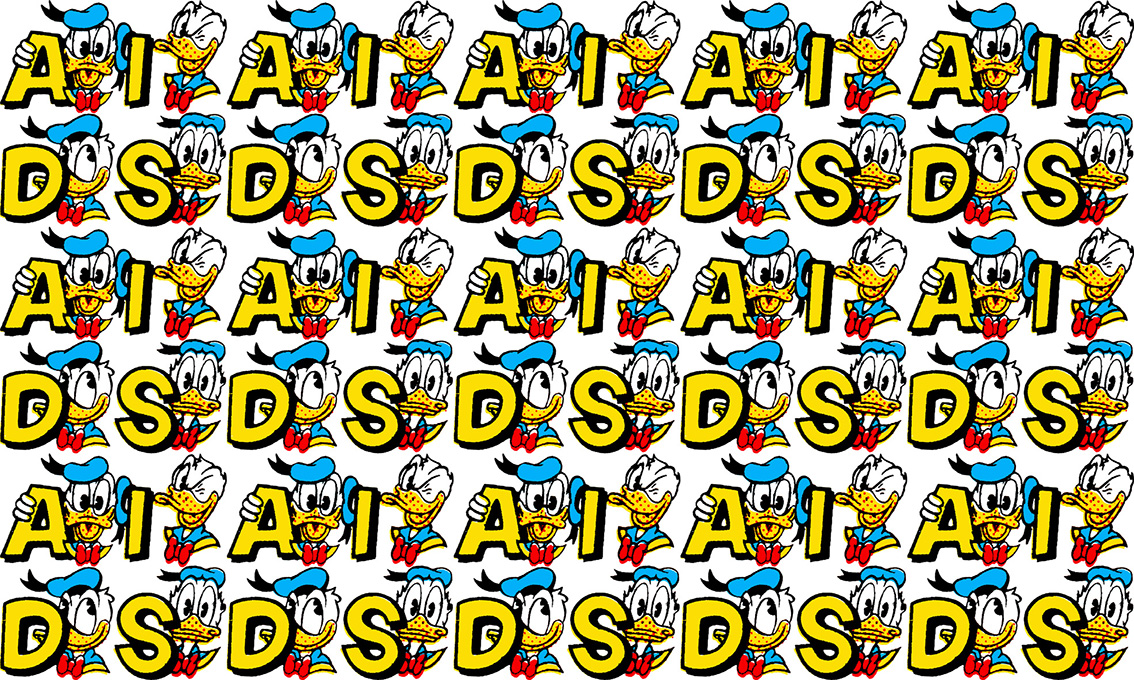01/06/ 2023 - 25/08 2023

Karol Radziszewski on Skopje Pride Weekend 2023 with an exhibition at MoCA
The 11 th edition of Skopje Pride Weekend Festival for queer and feminist art, theory and culture had its opening in MoCA Skopje at 1 June with the exhibition “Remembering futures” by Karol Radziszewski, and will be open until the end of August 2023.
Radziszewski’s multidisciplinary and archive-based practice within this exhibition is presented through two long – term projects. The first is DIK Fagazine, a periodical founded, published and edited by Radziszewski since 2005 –and to this date the only Central and Eastern European art magazine to focus on male homosexuality (it later expanded its framework to queerness). The second is the Queer Archives Institute, a para-institution founded in 2015 by Radziszewski.
Radziszewski’s exhibition also presents twenty framed reproductions from his series The Gallery of Portraits (2020 – ongoing). The series is itself an extension of his monumental Poczet (2017), composed of twenty-two ancestral portraits of non- heteronormative Polish figures from the past millennium. It includes a range of persons from across Central and Eastern Europe, reaffirming an expression of queerness that has to a large extent been suppressed or erased from their biographies.
The specific strategy of juxtaposing archival materials with artistic gestures of appropriation, displayed in form of multiples, prints, paintings, wallpaper, and other materials, that Karol Radziszewski deploys will be presented with the AIDS series (2012-ongoing), part of the Kisieland project. Hiacynt (2023), another crucial work by Radziszewski is also included in the exhibition. The work directs attention to the significance of the Akcja “Hiacynt” (Operation “Hyacinth”), a mass police action that took place in 1985–87 and aimed to create a database of all Polish homosexuals.
Radziszewski engagement with and challenging of national and state based historical narratives and archives, in the exhibition, is set in dialogue with another radical queer chronopolitics, which is the reworking, reimagining, revaluation and recontextualization of memories, experiences, fantasies, and images of his queer childhood. It is a matter of wall drawings, part of 1989 (2017 – ongoing), for which Radziszewski has transferred his sketchbook childhood drawings mostly of femme and effeminate figures and creatures, amongst a few religious or governmental citations, made during a period of momentous political and social transition onto a series of paintings and murals.
Considering the wide range of his artistic practices, we have decided to present also tow of Radziszewski’s film. The first is Kisieland (2012), a documentary presenting Radziszewski’s meeting with Ryszard Kisiel, a personality behind the first East-Central European gay-zine, Filo and "re-discovered" by the director. The backdrop of the film is Kisiel’s hitherto hidden archive, consisting of dozens of color slides, documenting photo shoots organized by Kisiel and his friends in a private apartment. The second film is Mon chéri Soviétique (2021), film made of hundreds of photographs telling a story of the last Soviet soldiers leaving Poland in 1990s.
Karol Radziszewski (b. 1980, Poland) works with film, photography, painting, installations and creates interdisciplinary projects. His archive-based methodology, crosses multiple cultural, historical, religious, social and gender references. Since 2005 he is publisher and editor-in-chief of DIK Fagazine, and has founded the Queer Archives Institute in 2015. Thetools Karol Radziszewski uses in editing the materials are unique. He combines facts with fantasies, composes documents with shreds of memory; he misleads so as to show alternative trails of remembering. He not only reveals individual experiences but also documents the histories of communities. And he does not limit himself to Poland alone.
Radziszewski’s work has been presented in institutions such as the Museum of Modern Art, Zacheta National Gallery of Art, CCA Ujazdowski Castle, Warsaw; Whitechapel Gallery, London; Kunsthalle Wien, Vienna; New Museum, New York; VideoBrasil, Sao Paulo; Tokyo Photographic Art Museum; Museum of Contemporary Art Metelkova, Ljubljana; Wroclaw Contemporary Museum and Muzeum Sztuki in Lodz. He has participated in several international biennales including PERFORMA 13, New York; 7th Göteborg Biennial; 4th Prague Biennial and 15th WRO Media Art Biennale.
His films have been screened at the T-Mobile New Horizons International Film Festival, Wroclaw (2014, 2012); Millennium Docs Against Gravity Film Festival, Warsaw (2019, 2013); BFI Flare: London LGBTIQ+ Film Festival (2014) and International Short Film Festival Oberhausen (2011); among others. In 2021, The Power of Secrets book dedicated to Radziszewski’s archival practice was published by Sternberg Press.
The thematic focus of SPW 2023 is QUEER CHRONOPOLITICS: History, Affects, Utopias. This year's curatorial choice of festival theme draws on complex and multifaceted research, critique, and performative practices within queer and feminist art, theory, and culture that question, problematise, and rethink heteronormative, nationalist, capitalist, and racial assumptions and politics of time, history and the archive, both in collective and individual normative experiences of time, history, memory, and development.
The Skopje Pride Weekend Festival is organised by Coalition MARGINS and the LGBTI Support Center, in partnership with TransFormA, Stronger Together, MoCA Skopje, CSS JADRO and Tiiiit!Inc. Skopje Pride Weekend is supported by Heinrich Böll Stiftung, Opcen Society Foundation Macedonia, Friedrich Ebert Stiftung, the Ministry of Culture of North Macedonia and Transgender Europe. The exhibition of Karol Radziszewski is realized in partnership with Stronger Together, and is partially supported by the European Union. Malik Nashad Sharpe's performance is realized in partnership with Transforma, and is partially supported by Transgender Europe. SHAME ON YOU! is realized in partnership with Tiiiit!Inc. and is supported by Sweden and the KVINNA till KVINNA Foundation.